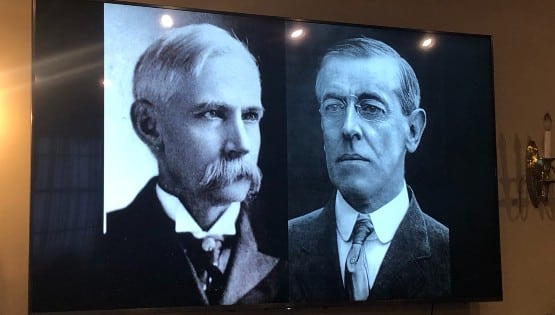
The talk will be presented by Ken Koons and Nancy Sorrells, local historians who have a soon-to-be-released book – Grain Into Gold: Milling & Distilling on the Dividing Waters – about these historically vital industries in Augusta and Rockbridge counties.
The ACHS Spring Meeting will be 3 p.m. Sunday, March 17 (St. Patrick’s Day) in the downstairs banquet room in the American Hotel at 125 South Augusta Street in Staunton. The meeting is free and open to the public. Appropriately themed refreshments will be served following the presentation. It is particularly appropriate that the meeting is held on St. Patrick’s Day since the day emanates from the birthplace of whiskey and the land from which the earliest Valley settlers brought their distilling skills.
The book by Koons and Sorrells is drawn from an exhibit that the two created for the Brownsburg Museum in 2016 and 2017. The exhibit highlighted the historical significance of grain and the two major forms of processing it in the Shenandoah Valley. The “dividing waters” reference is to the geographic region of southern Augusta and northern Rockbridge the headwaters of the James River flows south and east and the headwaters of the Shenandoah River flow north and east.
The general agriculture that marks the Valley today is a relatively new form of Valley farming. Until the 1930s Valley farmers emphasized growing grains, particularly wheat. The abundance of the grain spawned a large number of mills up and down the area. The presence of the grain – particularly excess production of grains like corn and rye – also led to the growth of many distilleries in the area. There was a strong economic reason for the distilleries, converting grains to liquor raised profits and reduced transportation costs. By the time of the American Revolution the Valley had gained a national reputation for its spirits. A century later Valley whiskey had become one of the favorites across the new nation.
Koons and Sorrells will use some of the illustrations and artifacts used in their book to tell the story of the important milling and distilling industries to the early history of this area. They will also discuss the future of the comprehensive display they created.
The ACHS was founded in 1964 to study, collect, preserve, publish, educate about, and promote the history of Augusta County and its communities. More information is available online at www.augustacountyhs.org.










